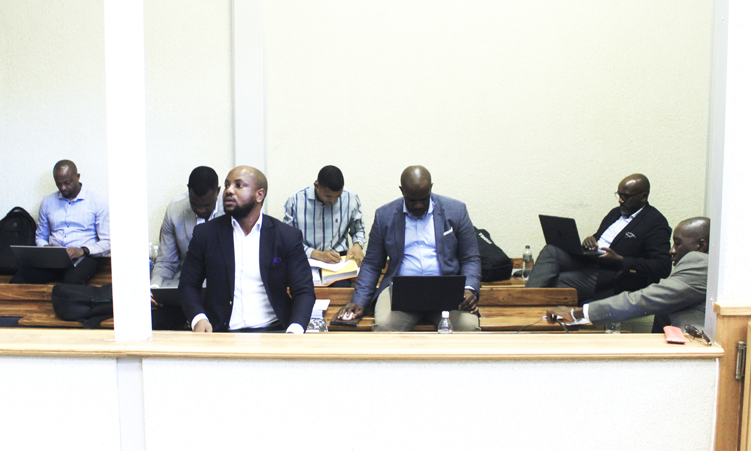Political analysts have criticised the appointment of Lucia Kazetjikuria, an executive at Swapo’s main business arm, Kalahari Holdings, as a director at the Central Procurement Board of Namibia (CPBN).
Political analyst Henning Melber has said Kazetjikuria’s appointment is a clear example of so-called state capture, where individuals holding political and administrative power through a governing party operate with tentacles in control over public institutions and assets.
Melber argues that Kazetjikuria’s appointment is not a conflict of interest, but rather a straightforward pursuit of interest, by vesting powers that should be strictly separated, into the same hands.
“Governance in Namibia under Swapo has long reached a similar degree of state capture,” Melber said.
Kazetjikuria, in a social media video posted by New Era after her swearing in at the High Court yesterday, said she applied for the position last year during an expression of interest.
“I feel happy for this opportunity. This is one of those boards you want to be part of. I want to see how I can contribute to that board as well because it plays a huge role in our economy and in our country,” Kazetjikuria said.
She is listed as the chief strategic officer at Kalahari Holdings on its website.
The finance ministry, as appointing authority of the CPBN board, said Kazetjikuria was appointed on merit.
“She is appointed on merit, not on the basis of her employer,” ministry spokesperson Wilson Shikoto said.
Kazetjikuria’s employer, Kalahari Holdings, formed in 1989, has been Swapo’s primary business front in a range of key economic sectors, including property, farming, media, fishing, transport, printing, security, healthcare and mining.
The Kalahari Holdings board is chaired by the CEO of the Development Bank of Namibia, Martin Inkumbi, whose 10-year tenure as the bank’s boss ends in August.
Political analyst Rui Tyitende said there could be a perception of undue influence in the tender process, whether there is a substantial conflict of interest or not.
Public opinion, Tyitende argues, is to the political market what consumer demand is to the economic market. In this case, Tyitende said, the public perception of the appointment could be damaging to the CPBN’s reputation and the trust citizens have in the procurement process.
While it is possible that Kazetjikuria could recuse herself from any tender processes involving Kalahari Holdings, the perception of a conflict of interest could still harm the CPBN’s reputation.
“Will she be able to influence a billion-dollar tender that Kalahari Holdings applied for, or will she remain neutral? Or will she recuse herself? Or will she be allowed to sit in as there is no ‘substantial conflict of interest?’,” Tyitende questioned.
Tyitende said no matter the circumstances, there will be a perception of undue influence in the tender process.
With Kazetjikuria as its ninth member, the CPBN board is chaired by Amon Ngavetene in an acting capacity.
Other board members include Epafras Shilongo, Hilya Herman, Ono-Robby Nangolo, Efaishe Nghiidipaa, Julinda !Garus-Oas, Martins Kambulu and Mary Shiimi.
CPBN was established in 2017 with the primary mandate to conduct the bidding process on behalf of public entities for the awarding of contracts for procurement or disposal of assets that exceed the threshold prescribed for public entities.
Stay informed with The Namibian – your source for credible journalism. Get in-depth reporting and opinions for
only N$85 a month. Invest in journalism, invest in democracy –
Subscribe Now!






